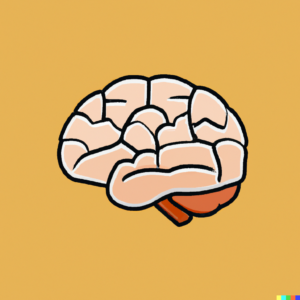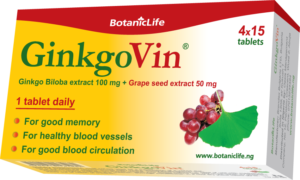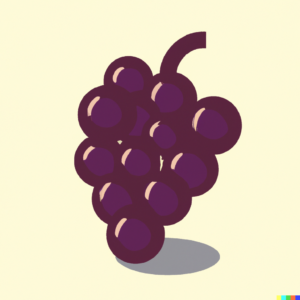⏰ Last Update: 14.08.2024
The human brain, a remarkable organ, is the control center of the nervous system and by far the most complex structure in the known universe. It is responsible for our thoughts, emotions, movement, and the interpretation of sensory information. But just like other body organs, the brain requires good nutrition and a healthy lifestyle to function optimally, and in some cases, supplementation can play a supportive role.

The Structure and Function of the Brain
The brain is divided into several distinct regions, each playing a vital role in our day-to-day life. The cerebrum, the largest part, is responsible for higher functions, including thinking, learning, emotion, and conscious movement.
The cerebellum, located at the back, helps control coordination and balance, while the brainstem connects the brain to the spinal cord and controls automatic functions like breathing and heart rate.
This complex organ is comprised of billions of interconnected neurons that communicate through electrical and chemical signals. It’s through this vast network that the brain regulates everything from movement to memory. It is also responsible for interpreting sensory information from our environment, allowing us to respond accordingly.
Most Common Brain Diseases
Alzheimer’s Disease and Dementia
Alzheimer’s disease is the most common form of dementia, characterized by progressive memory loss and cognitive decline. It results from the death of brain cells and the disruption of neural networks, ultimately affecting a person’s ability to remember, think clearly, and perform daily activities.
Parkinson’s Disease
Parkinson’s disease is a neurodegenerative disorder that primarily affects dopamine-producing neurons. The hallmark symptoms include tremors, rigidity, bradykinesia (slowed movement), and postural instability.
Stroke
A stroke occurs when blood flow to a part of the brain is interrupted, causing cells to die due to a lack of oxygen and nutrients. Stroke can result in a wide range of neurological deficits, depending on the area of the brain that is affected.
Learn everything you need to know about strokes: https://botaniclife.ng/blog/stroke/
Brain Tumors
Brain tumors can either originate in it or spread from other parts of the body.
Symptoms
Symptoms of diseases depend largely on the type of disease and the area of the brain it affects. However, common signs and symptoms may include:
- Memory loss or confusion
- Changes in mood or behavior
- Difficulty with movement or coordination
- Seizures
- Persistent or recurring headaches
- Visual disturbances
- Nausea or vomiting
Understanding Brain Health
Maintaining optimal brain health is vital not just for cognitive function but also for overall well-being. Factors that contribute include regular physical and mental exercise, a balanced diet, adequate sleep, and proper management of stress. Chronic health conditions, such as hypertension and diabetes, can also influence brain health, highlighting the importance of regular health check-ups.
Prevention of Brain Diseases
While not all diseases can be prevented, certain lifestyle modifications can reduce the risk of some conditions:
Maintain a Healthy Lifestyle
Regular physical activity, a balanced diet, and adequate sleep contribute to overall health, including brain health.
Avoid Substance Abuse
Excessive alcohol and illicit drug use can lead to damage over time.
Manage Chronic Conditions
Conditions like hypertension, diabetes, and high cholesterol can increase the risk of certain brain diseases, such as stroke. Regular medical check-ups and proper management of these conditions are essential.
Mental Exercises
Engaging in activities that stimulate the mind can help maintain cognitive function. This can include puzzles, reading, writing, or learning a new skill.
GinkgoVin
While lifestyle and diet play a critical role in maintaining brain health, supplements like GinkgoVin can also contribute to this endeavor. GinkgoVin is a carefully formulated natural supplement designed to promote vascular health and support cognitive function.
GinkgoVin harnesses the power of two potent plant-derived ingredients – Ginkgo Biloba and Grape Seed Extract. Ginkgo Biloba has been studied extensively for its positive effects on blood flow and brain function. It enhances cerebral and peripheral circulation, supporting efficient delivery of oxygen and nutrients. GinkgoVin contains a pharmacologically pure Ginkgo Biloba extract.
On the other hand, Grape Seed Extract is rich in antioxidants, helping to protect cells from damage by harmful free radicals. By improving blood vessel elasticity and reducing inflammation, Grape Seed Extract supports healthy blood pressure levels and overall vascular function.
Together, these ingredients make GinkgoVin a promising supplement for supporting brain health.
Learn more about GinkgoVin on the following link: https://botaniclife.ng/product/ginkovin/
Conclusion
Maintaining brain health is a lifelong process that requires a comprehensive approach, including a balanced diet, regular exercise, stress management, and in some cases, supplementation. GinkgoVin can play a supportive role in this endeavor by promoting vascular health and efficient circulation, both crucial for optimal function. However, as with any supplement, it’s essential to consult your healthcare provider before starting a regimen with GinkgoVin. GinkgoVin is not a replacement for a healthy lifestyle or prescribed treatments, but rather a possible enhancement to an already healthy approach to life.




